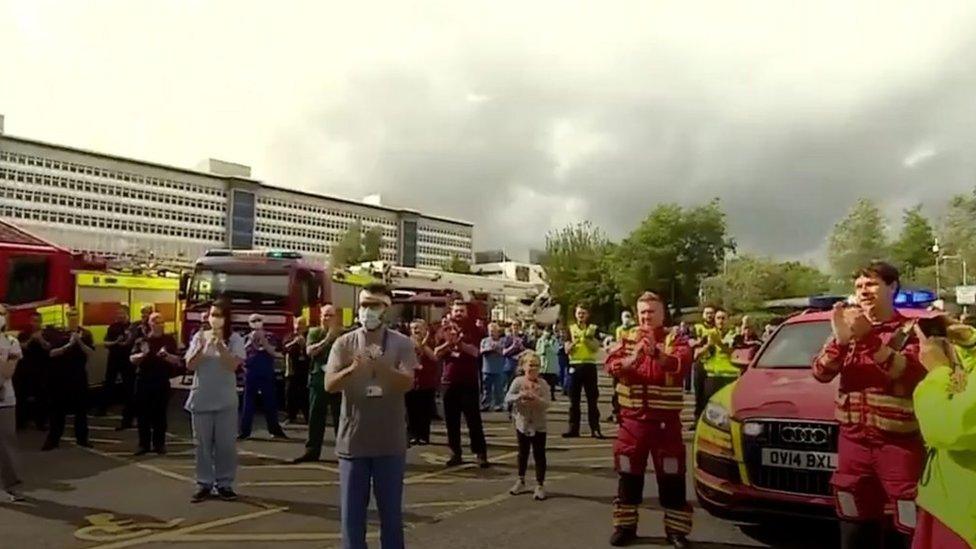Coronavirus: From working in retail to becoming a carer
- Published
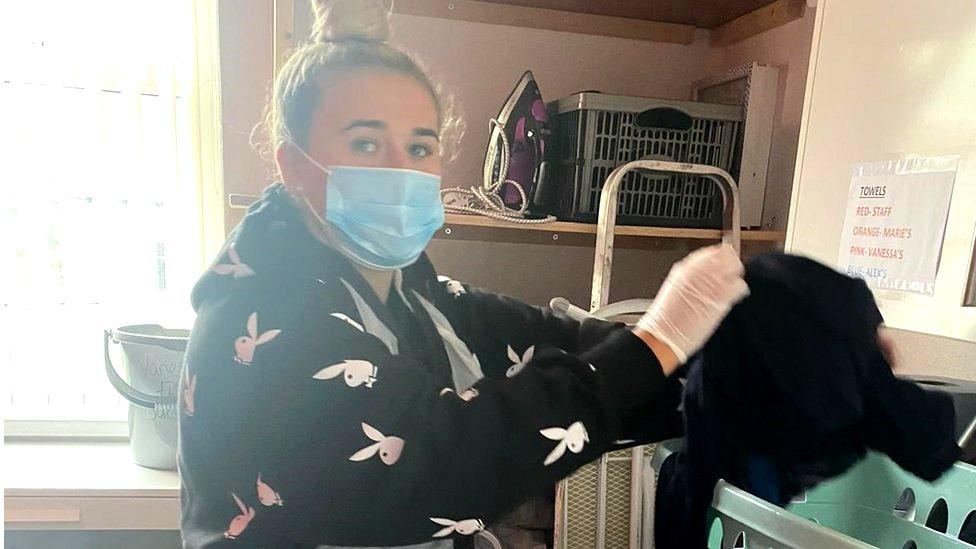
The UK went into lockdown just two weeks after Soraya started working as a carer
When Soraya Attard decided she was sick of her retail job, she had no idea she would land her dream job a fortnight before a global pandemic hit the UK.
Soraya, 19, worked in clothes shops after leaving school.
But she could not see herself forging a career path in the industry.
Soraya, from Cardiff, decided to study health and social care at college, alongside her full-time retail job, and work towards a career she had felt drawn to since age of 11.
"I love clothes, love my clothes, but I was never really interested in working in fashion - it was just a job," she said.
"I got to a point where I was sick of packing bags, stacking shelves, and working on tills, and I wanted to get out of retail.
"I knew I wanted a job where I could spend time with people."
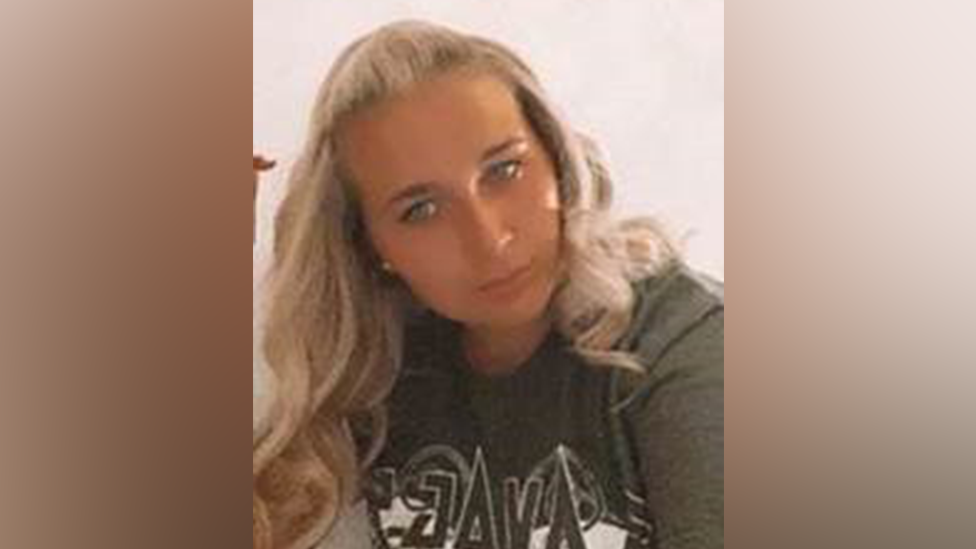
Soraya Attard loves clothes but could not see herself working in retail long-term
Soraya felt nervous ahead of her first shift with Dimensions in Cardiff, which supports people with learning disabilities and autism.
But she knew within hours she had chosen the right career path.
"I didn't really know what to expect, but within an hour I loved it.
"I knew this was where I wanted to be."
Just two weeks later, the coronavirus pandemic was growing in the UK and the country went into lockdown - meaning Soraya was suddenly the only human contact for the people she supports.
"I would say the enormity of it still hasn't quite hit me.
"I suppose it's felt normal because I'm working, if my job wasn't front line I think it would feel more weird.
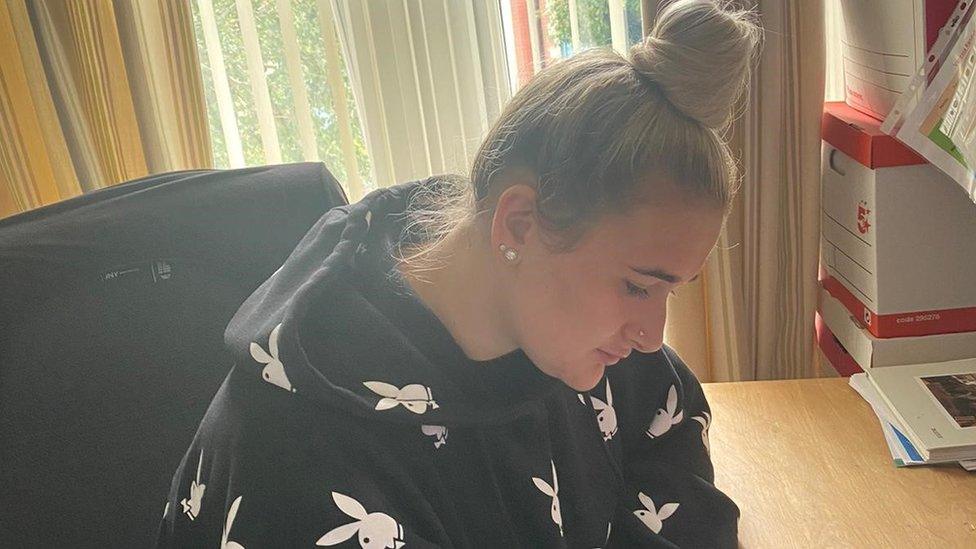
Soraya says she was just an hour into her first shift when she knew she had picked the right career
"But when you stop and think about it's like, I am actually working on the front line in a pandemic."
In the beginning, Soraya said her main focus was on ensuring the people she supports understood social distancing and how to protect themselves when out.
"I'm more scared for the people I support than for myself, they are more vulnerable.
"But also, they are all pretty close with their families and were seeing them on a regular basis, that's what they rely on, so without that their days were merging into one."
Soraya's focus quickly became thinking of ways to entertain the people she supports - with walks being the only outdoor activity allowed.
"Usually they'd have been seeing friends or family or going to classes, so we had to think of things to do they would enjoy and different walks to go on."
Soraya said theys coped "amazingly well" with the anxiety of the virus and lockdown, though there were good days and bad days.
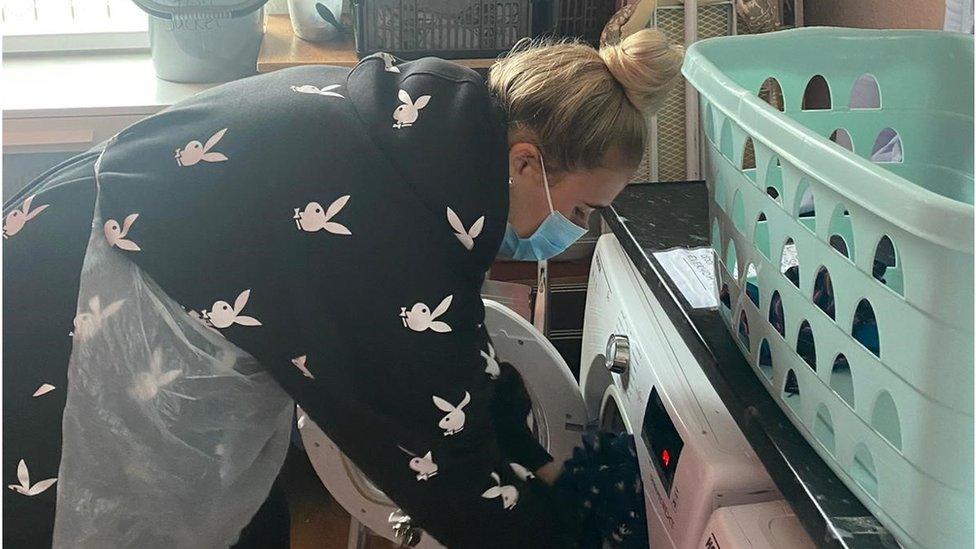
Soraya says it has been difficult at times explaining to people why they cannot see their families
"Some days they might not want to go out at all, they might have seen something on the news and it's got in their head.
"They might be anxious about walking in a built-up area for example because they had heard not to do it, but if somewhere was crowded we would always turn back.
"They're probably sick to death of picnics now, we've done so many picnics, but it's the biggest challenge, coming up with new things especially in this time, and they've coped amazingly well."
Soraya said she drove home the safety messages to those she supports - until they were even the ones advising their own loved ones.
"It's been challenging and we've had to spend time explaining what's going on and why their families aren't able to visit, but they've taken in their stride and have been video calling their families to stay connected.
"We'd explain safer ways of doing things but they were all more worried about their families than themselves, because they hadn't been able to see them.
"One lady would keep asking her family 'are you actually OK, are you sure you are keeping your social distance?'."
Soraya hopes that the pandemic has opened society's eyes to the importance of social care work.
'Brighten someone's day, every day'
"Since coronavirus, I think people are starting to value social care work more, and are realising how much we actually do and how important our jobs are.
"But some people still undervalue it, and there's a long way to go.
"I can't see myself doing anything else now."
Soraya said she would encourage anyone who has considered support work to give it a try.
"If you can brighten up someone's day, every day, that is the best part of this job.
"If I haven't made them smile by the end of my visit, I ask 'why haven't you smiled yet' and then they do, and I say 'I can go home now!', knowing I am making them happy and their life more enjoyable."
- Published8 July 2020
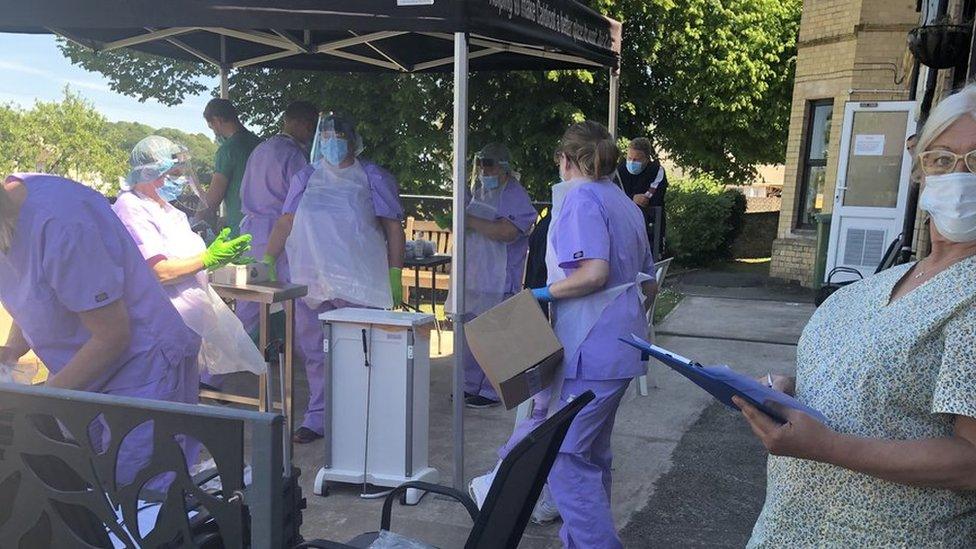
- Published14 May 2020
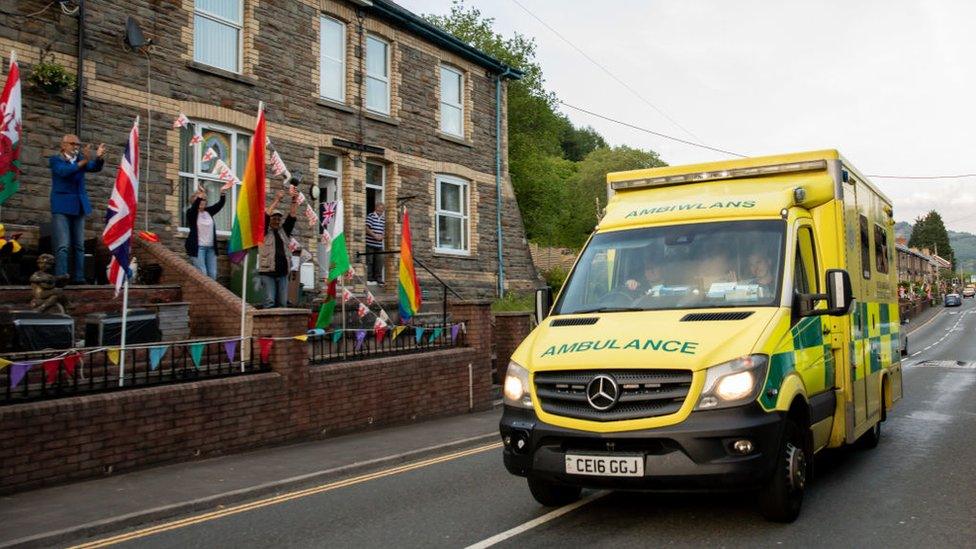
- Published5 July 2020
